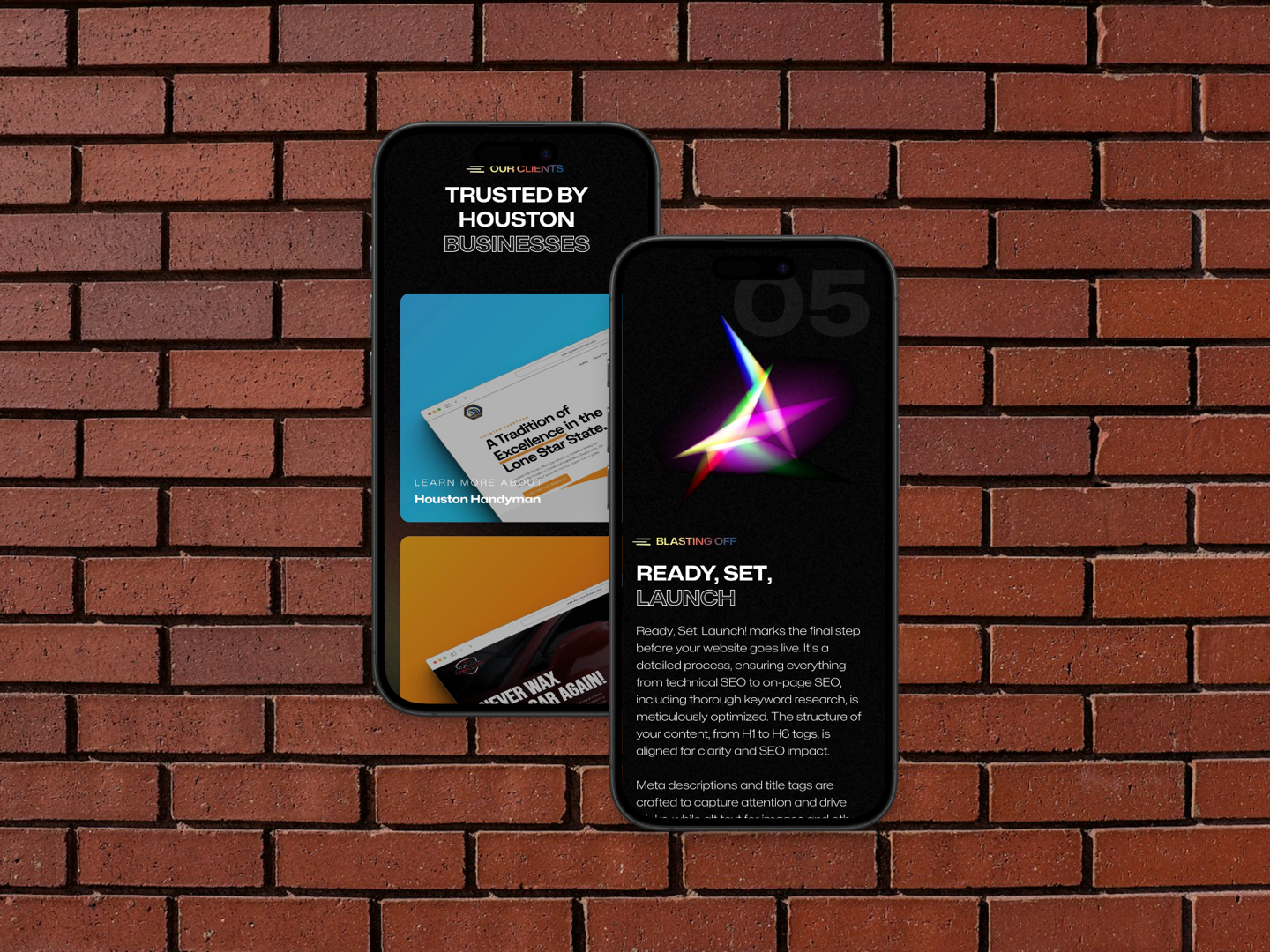Texas Business License Guide for 2025 Success

Starting a business in Texas? You're probably wondering about business licenses, permits, and all the legal requirements.
Here's what nobody tells you: Texas doesn't have a general state business license.
But that doesn't mean you're free to skip the paperwork.
Most entrepreneurs waste hours searching for something that doesn't exist. They type "Texas business license" into Google and fall down a rabbit hole. Or worse, they assume no general license means no licenses at all, and then the penalties arrive.
We run a small web design agency in Houston. The confusion was real. Every answer we needed was locked behind a $1,000 phone call with an attorney. Money we didn't have.
So we made this guide. For the future business owners who deserve better.
Do You Really Need a Texas Business License?
Texas doesn't require a single, blanket state business license for most businesses.
That's the good news.
The complicated news? You still need other things. Lots of other things. Texas just outsources the licensing work to cities, counties, and specific industries.
Think of it as a puzzle. Each piece depends on what you do and where you do it.
The 2024-2025 Texas Business Licenses & Permits Guide from the Governor's Office lists everything. The Business Permit Office can help when applications get stuck.

Types of Business Licenses Required in Texas
Three layers exist: state, local, and federal.
Each one matters.
State-Level Licenses and Permits
No general license doesn't mean no licenses.
If your business involves a regulated field, you need permission from a state board. The Texas Department of Licensing and Regulation oversees electricians, cosmetologists, contractors. Other boards handle healthcare providers, real estate agents, attorneys, accountants.
Sell tangible goods? Provide taxable services? You need a Sales and Use Tax Permit from the Texas Comptroller. It's free, but it's not optional.
Some industries need specific state permits. Alcohol sales require TABC approval. Food service needs DSHS clearance. Child care, transportation -each has its own gatekeeper.
Local Business Permits (City and County)
This is where most Texas businesses actually encounter licensing requirements.
Every city writes its own rules.
Houston requires a Certificate of Occupancy. No general registration certificate exists. Get your permits through the Houston Permitting Center.
Dallas charges $120 for business registration through the Building Inspection Division. As of 2025, everything runs through the DallasNow system.
Austin skips the general business license but requires permits based on what you do. Home-based businesses need a home occupation permit. Everything goes through Austin Development Services.
San Antonio has no citywide license either. But food service, alcohol sales, mobile vending -each needs its own permit through Development Services.
The pattern reveals itself. Texas pushes the work local.
Federal Business Licenses
Most small businesses won't need federal permission.
But if a federal agency regulates your activity, you can't skip it. Broadcasting needs the FCC. Transportation needs the DOT. Making alcohol, tobacco, or firearms? The TTB wants to hear from you. Commercial fishing requires NOAA approval.

How to Get Your Texas Business Licenses and Permits: A Step-by-Step Guide
Here's the path forward.
1. Form Your Business Entity
Start by establishing your structure.
LLCs file a Certificate of Formation with the Texas Secretary of State. The fee is $300.
Corporations file Articles of Incorporation. Same $300 fee.
SOSDirect handles online filing. Expect three to five business days.
2. Get Your Federal EIN
The IRS calls it an Employer Identification Number.
You need it to hire employees, open a business bank account, file taxes. Apply for free on the IRS website. Takes about fifteen minutes.
3. Register for State Taxes
Selling goods? Providing taxable services? Hiring employees?
Register with the Texas Comptroller.
The Sales and Use Tax Permit is free. Employer tax accounts handle unemployment insurance. Franchise tax applies to LLCs and corporations. For 2025, businesses under $2.47 million in revenue owe nothing, but you still file the annual report.
4. Obtain Local Permits
Call your city or county clerk.
Ask what they require. Common needs include business operating permits, certificates of occupancy, home occupation permits, signage permits, health and fire department clearances.
Each city differs. That's the point.
5. Secure Industry-Specific Licenses
Check with the relevant state agencies.
TDLR handles many professional licenses. TSBP oversees pharmacy. TABC controls alcohol. DSHS manages health services.

Texas Business License Costs: What to Expect
Numbers matter.
State-level costs: $300 for LLC or corporation formation. Sales tax permit costs nothing. Professional licenses run $50 to $500 or more.
Local costs vary. City business permits range from $15 to $500. Certificates of occupancy cost $75 to $300. Health permits run $100 to $500.
Annual renewals depend on your situation. Franchise tax is based on revenue—most small businesses pay zero. Professional and local licenses renew at different rates.
Budget $500 to $2,000 for startup licensing costs. Your specific numbers depend on what you do and where.
Business License vs. LLC vs. EIN: Understanding the Differences
New business owners confuse these constantly.
A business license gives you permission to operate in a specific location or industry. Local governments or state agencies issue them for regulatory purposes.
An LLC is a business structure that protects your personal assets. You create it by filing with the Texas Secretary of State. It builds a legal wall between your personal life and your business.
An EIN is a federal tax ID. The IRS issues it for tax purposes.
None of these replace the others.
An LLC is not a license. An EIN is not a business license. You might need all three.

How Long Does It Take to Register a Business in Texas?
Timelines vary.
Entity formation takes three to five business days when you file online.
EIN applications process immediately on the IRS website.
Local permits range from same-day approvals for simple requests to two to six weeks for complex ones requiring inspections.
Professional licenses take two to twelve weeks, especially when testing or background checks enter the picture.
Total timeline: one to twelve weeks, depending on complexity.
Tips for Faster Business Registration
Prepare everything in advance. Business name, owner information, registered agent details, a description of your activities.
File online whenever possible. SOSDirect for entity formation. The IRS website for your EIN. Your city's portal for local permits.
The Secretary of State offers expedited services for an additional fee.
Or hire professionals. Attorneys and CPAs navigate complex structures and tax registrations daily.

Common Texas Business License Mistakes to Avoid
Learn from others' mistakes.
Don't assume no general license means no licenses. It just means the requirements scatter across multiple agencies.
Don't ignore local rules. City and county requirements vary dramatically.
Don't confuse business structure with licensing. Forming an LLC doesn't satisfy permit requirements.
Don't forget renewal deadlines. Set calendar reminders for every license, permit, and report.
Don't skip franchise tax filings. Even when you owe nothing, the report still matters.

Special Considerations
Requirements for Home-Based Businesses
Operating from home adds complications.
Zoning restrictions often limit customer visits, signage, employees working on-site.
Most cities require home occupation permits.
Your HOA might prohibit or restrict business activities entirely. Check before you start.

Resources and Support
Texas Secretary of State handles business entity formation.
Texas Comptroller manages tax registration and franchise tax.
Texas Department of Licensing and Regulation oversees most professional licenses.
Small Business Development Centers offer free counseling and support.
"What you Northerners never appreciate… is that Texas is so big that you can live your life within its limits and never give a damn about what anyone in Boston or San Francisco thinks... Same with businessmen. Same with newspapers. Same with everything." — James Michener, author of 'Texas'.

Frequently Asked Questions (FAQ)
Q: How much does a business license cost in Texas?
There's no single cost. Formation fees run $300. Local permits cost $50 to $500. Professional licenses vary. Total expenses typically range from $500 to $2,000.
Q: Is a business license the same as an LLC in Texas?
No. An LLC is a legal structure providing liability protection. A business license is permission to operate. Different purposes, different sources.
Q: Do I need to register my small business in Texas?
Yes. At minimum, register with your local city or county, obtain a federal EIN, register for state taxes if you sell taxable goods.
Q: What businesses don't need a license in Texas?
Some online-only businesses or home-based freelancers have minimal licensing needs. But even they often need home occupation permits and sales tax permits if selling products.

Industry-Specific Licensing Guides
Food service needs food handler licenses, health permits, fire department clearances.
Construction varies. General contractors don't need state licenses, but electricians and plumbers do. Cities add their own registration requirements.
Retail businesses need sales tax permits, certificates of occupancy, signage permits. The minimum.
Food Service Businesses
Required licenses and permits:
- Food Handler's License (all employees)
- Food Manager Certification
- Health Permit
- Fire Department Permit
- Signage Permits
Construction and Contractors
Licensing requirements:
- TDLR registration for certain trades
- Local contractor licenses
- Workers' compensation insurance
- Liability insurance proof
- Note: General contractors don't need state licenses but cities have varying requirements
Healthcare Practices
Extensive requirements including:
- Professional licenses for all practitioners
- Facility licenses
- DEA registration (if applicable)
- Medicare/Medicaid provider numbers
Retail Businesses
Essential permits:
- Sales Tax Permit
- Certificate of Occupancy
- Signage permits
- Music licensing (if playing copyrighted music)
“There is a special mystique to Texas... We are bigger than life in our boots and Stetsons, rugged individualists... and we were the first to define hospitality.” — Ann Richards

Maintaining Compliance: Post-License Requirements
Getting licensed is just the beginning.
Annual requirements include franchise tax reports, license renewals, property tax renditions.
Ongoing compliance means maintaining a registered agent, keeping business information current, displaying licenses where required.
Growth creates new needs. Additional locations or activities trigger additional permits.
Annual Requirements
- Franchise tax reports or Public Information Report (due May 15)
- Sales tax filings (monthly or quarterly)
- License renewals
- Annual reports for LLCs/Corporations
- Property tax rendition (January 1 - April 15)
Ongoing Compliance
- Maintain registered agent
- Update contact information
- Display licenses as required
- Keep accurate records
Growth Considerations
As your business expands, you may need:
- Additional location permits
- Interstate commerce licenses
- Federal licenses
- Industry certifications
Resources and Support
Key Government Resources:
- Texas Secretary of State: Business entity formation
- Texas Comptroller: Tax registration and franchise tax
- Texas Department of Licensing and Regulation (TDLR): Professional licenses
- Business Permit Office (BPO): Assistance with permit issues
- Small Business Development Centers (SBDCs): Free business counseling
Online Tools:
- SOSDirect: Online business filing system
- Texas Business Portal: Comprehensive business resource
- TDLR License Data Search: Verify existing licenses

Frequently Asked Questions About Texas Business Licenses
Q: How much does a business license cost in Texas?
Texas doesn't have a state-level general business license, so there's no single cost. However, you'll face various fees:
- LLC or Corporation formation: $300
- Local business permits: $15-$500
- Professional licenses: $50-$500+
- Sales tax permit: Free
- Total costs typically range from $500-$2,000 for most small businesses.
Q: What is needed to get a business license in Texas?
Requirements vary by location and business type, but generally include:
- Business entity formation (LLC, Corporation, etc.)
- Federal EIN from the IRS
- State tax registrations
- Local permits from your city/county
- Industry-specific licenses if applicable
- Proof of insurance (some industries)
Q: Is a business license the same as an LLC in Texas?
No, they're completely different:
- An LLC is a business structure that provides liability protection
- A business license is permission to operate in a specific location or industry
- You can have an LLC without a business license, and vice versa
Q: Do I need to register my small business in Texas?
Yes, most small businesses need some form of registration:
- Register your business structure with the Secretary of State (LLCs, Corporations)
- Obtain an EIN from the IRS
- Register for state taxes if applicable
- Get local permits based on your city/county requirements
Q: Is a business license the same as an EIN?
No, they serve different purposes:
- EIN: Federal tax identification number issued by the IRS
- Business license: Local or state permission to operate
- An EIN is used for tax purposes; licenses are for regulatory compliance
Q: Are business licenses required in TX?
Texas doesn't require a general state business license, but most businesses need:
- Local permits from cities or counties
- Professional licenses for regulated industries
- Sales tax permits for retail businesses
- Specific permits based on business activities
Q: Does Texas require you to have a business license?
Not at the state level for most businesses. However, you'll likely need:
- Local business permits from your city
- Professional licenses if in a regulated field
- Various permits based on your business type
- Federal and state tax registrations
Q: What businesses don't need a license in Texas?
Some businesses with minimal licensing requirements include:
- Freelance writers and designers (home-based)
- Online consultants with no physical location
- Bloggers and content creators
- Some online-only businesses
Note: Even these may need local permits or tax registrations
Q: How long does it take to get a Texas business license?
Timeline varies by type:
- LLC/Corporation formation: 3-5 business days
- EIN: Immediate online, up to 4 weeks by mail
- Local permits: Same day to 6 weeks
- Professional licenses: 2-12 weeks
- Total time: 1-12 weeks depending on complexity
Q: How fast can I register a business?
The fastest route:
- EIN: Immediate online
- LLC formation: 24 hours with expedited service
- Basic local permits: Same day in some cities
- Realistically, expect 1-2 weeks for basic businesses, longer for regulated industries
Q: How much does an LLC cost in Texas?
LLC formation costs include:
- State filing fee: $300
- Registered agent: $50-$300/year
- EIN: Free from IRS
- Operating Agreement: $0-$500 if using attorney
- Business licenses: Varies by location
- Total: $350-$1,000+ for basic LLC setup
Q: Does an EIN count as a business license?
No, an EIN is not a business license:
- EIN: Tax identification number for federal purposes
- Business license: Legal permission to operate
- You need both for most businesses
- Neither substitutes for the other
Q: Does having an EIN mean you have a business?
Not necessarily. An EIN simply means:
- You have a federal tax ID number
- You can open business bank accounts
- You can hire employees
- It doesn't mean you're legally authorized to operate in any location
Q: What is an example of a business license?
Common examples in Texas include:
- City of Houston Certificate of Occupancy
- Texas Sales and Use Tax Permit
- TABC License for alcohol sales
- Cosmetology License from TDLR
- Food Handler's Permit
- Home Occupation Permit
- Dallas Business Registration Certificate
Q: Is EIN proof of business?
An EIN provides limited proof:
- Shows you have a federal tax ID
- Useful for banking and tax purposes
- Not proof of legal business structure
- Not proof of authorization to operate
- For full proof, you'd need formation documents and licenses
Q: What is a business license number?
A business license number is:
- The unique identifier on your specific license or permit
- Different from your EIN or state ID number
- Used to track your compliance
- Required for certain transactions or applications
- Varies by issuing authority

Conclusion
Texas doesn't have a general state business license.
But that doesn't make starting a business simple. It makes it scattered. The regulations exist in layers—state, local, federal, each with different requirements.
Success comes from understanding what your specific business needs. Based on location, industry, structure.
Form your entity first. Get your EIN. Then work systematically through local and industry-specific requirements. The Business Permit Office exists for a reason—use it.
With proper planning, you can have your Texas business fully licensed in a few weeks.
The real question isn't whether you need licenses. It's whether you're willing to do the work to find out which ones matter for you.
.svg)
.avif)






.webp)